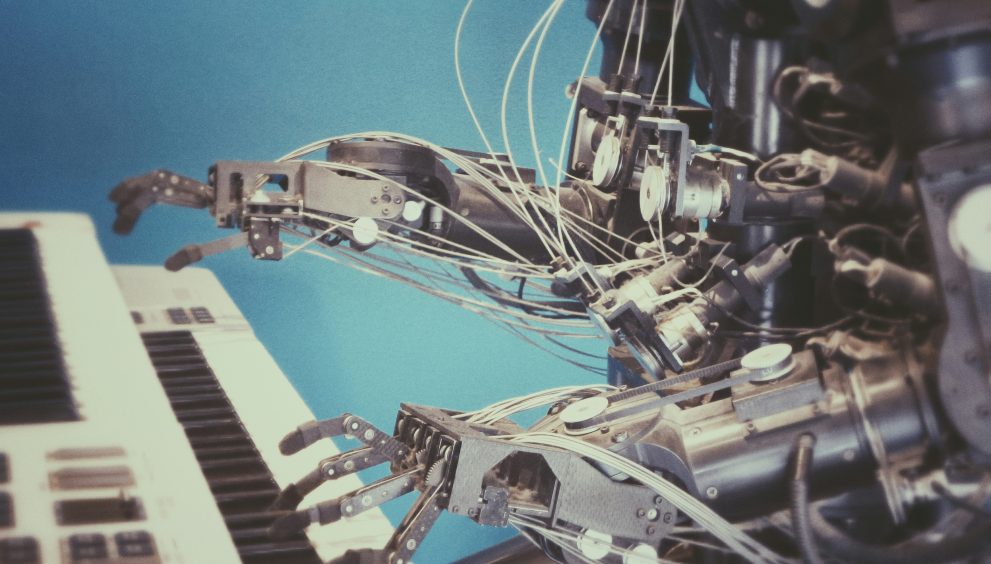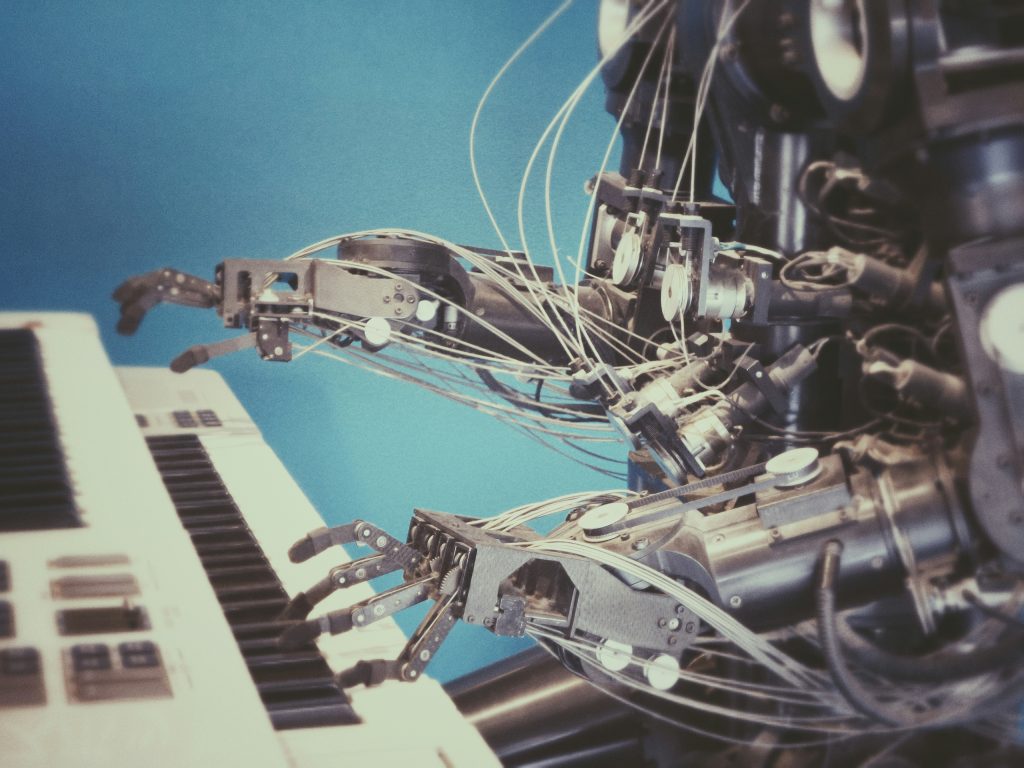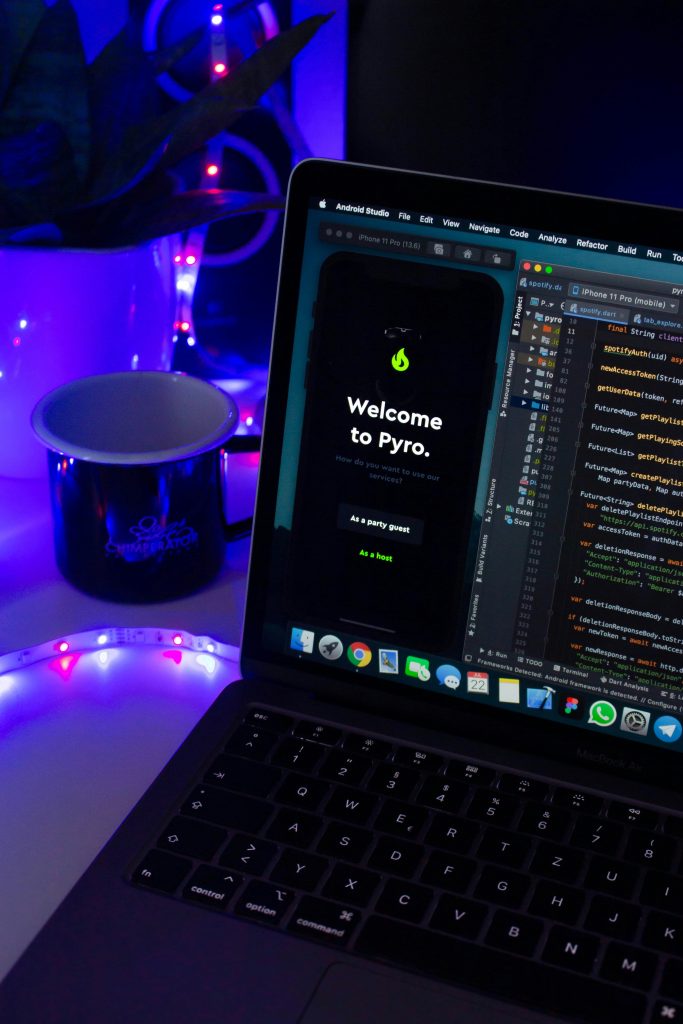How Artificial Intelligence Is Reshaping the Music Industry

Artificial Intelligence’s impact on the music industry is undeniable, with its ability to revolutionize various aspects of music creation, consumption, and collaboration. From AI-generated melodies sparking new creative possibilities to trend prediction algorithms shaping the music landscape, the influence of artificial intelligence is profound. But how exactly are these advancements changing the way artists create and audiences experience music? Let’s explore the intricate ways in which AI is reshaping the music industry and what this means for the future of music as we know it.
AI Songwriting Capabilities
AI enhances songwriting by generating melodies and lyrics based on complex algorithms and data analysis. With AI technology, you have the power to create unique and captivating music compositions effortlessly. By analyzing vast amounts of existing songs, AI can suggest chord progressions, melodies, and even lyrical themes that resonate with your style. This can be a game-changer for songwriters looking to break creative blocks or explore new musical territories.
Imagine having a virtual collaborator that can offer fresh ideas and inspiration at any time. AI songwriting tools allow you to experiment with different sounds and genres, helping you push the boundaries of your music. Whether you’re a seasoned musician or just starting out, AI can provide valuable insights and suggestions to enhance your songwriting process.
Trend Prediction Algorithms
Utilizing trend prediction algorithms revolutionizes how music industry professionals anticipate and adapt to evolving consumer preferences. By analyzing vast amounts of data from streaming platforms, social media, and other sources, these algorithms can identify patterns and forecast upcoming trends in music. This predictive capability allows industry professionals to make informed decisions regarding artist signings, marketing strategies, and overall content production.
With trend prediction algorithms, music labels can better tailor their artist roster to align with the latest consumer demands, leading to increased relevance and success in the market. Additionally, these algorithms enable professionals to adjust promotional efforts in real-time, ensuring that they stay ahead of the curve and capitalize on emerging trends swiftly.
In essence, trend prediction algorithms serve as invaluable tools for navigating the dynamic landscape of the music industry, offering a competitive edge by providing actionable insights into what resonates with audiences. By leveraging these algorithms effectively, music industry professionals can anticipate shifts in consumer preferences, fine-tune their strategies, and ultimately drive greater engagement and success.
Personalized Music Recommendations
In today’s music landscape, personalized music recommendations play a pivotal role in enhancing user experiences and driving engagement. With the help of artificial intelligence algorithms, platforms like Spotify and Apple Music analyze your listening habits, preferences, and even mood to offer tailored suggestions.
By curating playlists and suggesting new artists or songs based on your unique tastes, these recommendations keep you hooked and discovering new music constantly. Imagine starting your day with a playlist that perfectly matches your morning vibe or receiving a notification about a new release from an artist you love; these personalized recommendations make your music journey more enjoyable and seamless.
Through machine learning, these platforms continuously learn from your interactions, refining their suggestions to ensure you always have a personalized and engaging music experience. So, the next time you press play on a recommended track and it resonates with you, remember that artificial intelligence played a key role in making that connection happen.
Enhanced Music Production Processes
With advancements in technology, music production processes have been revolutionized, streamlining workflows and enhancing creative possibilities for artists and producers alike. Artificial intelligence (AI) tools now offer a wide range of features that empower music creators to achieve professional-quality results more efficiently.
AI-powered software can assist in tasks such as audio editing, mixing, and mastering, helping to save time and improve the overall quality of music production.
One significant benefit of AI in music production is its ability to analyze vast amounts of data quickly, providing valuable insights that can guide creative decisions. For example, AI algorithms can help identify trends in music consumption, allowing artists to tailor their sound to current preferences.
Additionally, AI can generate musical ideas based on existing compositions, sparking inspiration and pushing the boundaries of creativity.
Impact on Artist Collaboration
Artificial intelligence has transformed artist collaboration dynamics in the music industry, fostering new levels of creativity and efficiency. By utilizing AI-powered tools, artists can now collaborate across vast distances in real-time, breaking down geographical barriers that once hindered joint projects. These technologies enable seamless sharing of ideas, tracks, and feedback instantaneously, leading to more fluid and productive collaborations.
Moreover, AI algorithms can analyze vast amounts of musical data to suggest harmonies, melodies, or rhythms that complement a collaborator’s style, sparking fresh ideas and innovative approaches. This not only expedites the creative process but also introduces new perspectives that artists mightn’t have explored otherwise.
Additionally, AI can assist in organizing and managing collaborations by scheduling sessions, tracking progress, and facilitating communication between artists and producers. This streamlines the workflow, ensuring that projects stay on track and deadlines are met efficiently.
In essence, AI is revolutionizing artist collaboration by enhancing communication, inspiring creativity, and optimizing efficiency in the music industry.
Evolution of Music Consumption
The way people listen to music has undergone significant changes with advancements in technology. Streaming services like Spotify, Apple Music, and Amazon Music have revolutionized music consumption, offering vast libraries at your fingertips. You can create personalized playlists, discover new artists through algorithms that tailor recommendations to your taste, and enjoy music on the go without the need for physical copies.
Moreover, social media platforms such as TikTok and Instagram have become essential for music discovery and sharing. Artists now connect with fans directly, promoting their music through engaging content and live streams. These platforms have empowered listeners to interact with music in ways unimaginable before, fostering a more intimate relationship between artists and their audience.
Additionally, the rise of smart devices and voice assistants has made accessing music even more convenient. You can simply ask Alexa or Google to play your favorite songs, making music an integral part of your daily routine.
As technology continues to evolve, the future of music consumption holds endless possibilities for immersive and personalized experiences.
Conclusion
In conclusion, artificial intelligence is revolutionizing the music industry with its innovative capabilities. This includes advanced songwriting algorithms, trend prediction models, personalized recommendations, streamlined production processes, and enhanced artist collaboration tools.
The evolution of music consumption is being shaped by AI’s ability to analyze data and offer valuable insights. This pushes creative boundaries and enhances the overall music experience for artists and listeners alike.
AI’s impact on the music industry is undeniable and continues to reshape the way music is created, consumed, and shared.
 English
English 

















